
 This edition first published in the UK and USA in 20XX by Watkins, an imprint of Watkins Media Limited Unit 11, Shepperton House 89-93 Shepperton Road, London N1 3DF Design and typography copyright Watkins Media Limited 20XX Text copyright Author (TBC by Managing Editor) 20XX author(s) has/have asserted his/her/their right under the Copyright, Designs and Patents Act 1988 to be identified as the author(s) of this work. All rights reserved. No part of this book may be reproduced or utilized in any form or by any means, electronic or mechanical, without prior permission in writing from the Publishers. 1 3 5 7 9 10 8 6 4 2 Designed by XXX Typeset by XXX Printed and bound in XXX (Use: Manufactured in the United States of America if printed in US) A CIP record for this book is available from the British Library ISBN: 978-1-XXXXX-XX-X www.watkinspublishing.com Alan Jacobs , a retired businessman and art dealer, has made a lifelong study of mysticism. He has almost made an extensive study of the teachings of G I Gurdjieff, J Krishnamurti and Douglas Harding and is Chairman of the Rmana Maharshi Foundation in the UK. He is a poet himself and is published regularly.
This edition first published in the UK and USA in 20XX by Watkins, an imprint of Watkins Media Limited Unit 11, Shepperton House 89-93 Shepperton Road, London N1 3DF Design and typography copyright Watkins Media Limited 20XX Text copyright Author (TBC by Managing Editor) 20XX author(s) has/have asserted his/her/their right under the Copyright, Designs and Patents Act 1988 to be identified as the author(s) of this work. All rights reserved. No part of this book may be reproduced or utilized in any form or by any means, electronic or mechanical, without prior permission in writing from the Publishers. 1 3 5 7 9 10 8 6 4 2 Designed by XXX Typeset by XXX Printed and bound in XXX (Use: Manufactured in the United States of America if printed in US) A CIP record for this book is available from the British Library ISBN: 978-1-XXXXX-XX-X www.watkinspublishing.com Alan Jacobs , a retired businessman and art dealer, has made a lifelong study of mysticism. He has almost made an extensive study of the teachings of G I Gurdjieff, J Krishnamurti and Douglas Harding and is Chairman of the Rmana Maharshi Foundation in the UK. He is a poet himself and is published regularly.
He lives in London. Compilations by the same author The Gnostic Gospels (Sacred Texts) 2005 Platos Republic: A Vision of Truth, Justice and the Ideal Society (Sacred Texts) 2009 Peace of Mind: Words of Wisdom to Comfort and Inspire 2010 His Holiness the Dalai Lama: Infinite Compassion for an Imperfect World (Watkins Masters of Wisdom) 2011 Thoreau: Transcendent Nature for a Modern World (Watkins Masters of Wisdom) 2012 The Principal Upanishads: The Essential Philosophical Foundation of Hinduism (Sacred Texts) 2012 Gandhi: Radical Wisdom for a Changing World (Watkins Masters of Wisdom) 2016 Nature American Wisdom: A Spiritual Tradition at One with Nature (Sacred Texts) 2018 To the pilgrims of all religions who seek to travel the inner way to the city of God Contents Acknowledgements The editor gratefully acknowledges the following for permission to reproduce poems in copyright: Mike Annesley for his translation of sections of Lao Tzu, The Tao Te Ching . Bloodaxe Books for Kyrie from Mass for Hard Times by R S Thomas. Alfred A Knopf for The Coming of Light from Selected Poems by Mark Strand, copyright 1979, 1980 by Mark Strand. Used by permission of Alfred A Knopf, an imprint of the Knopf Doubleday Publishing Group, a division of Penguin Random House LLC. All rights reserved.
Oxford University Press Inc. for The Eclipse from Richard Eberhart, Collected Poems 19301976. C opyright 1976 Richard Eberhart. Robert Saxton for his translations of Rainer Maria Rilke, Sonnets to Orpheus II 4 and II 29, copyright Robert Saxton. All rights reserved. Robert Saxton for The Angel Roof from The Promise Clinic (Enitharmon Press), copyright Robert Saxton (www.robertsaxton.co.uk).
All rights reserved. The editor and publisher have made every effort to secure permission to reproduce material protected by copyright. They will be pleased to make good any omissions brought to their attention in future printings of this book. Preface A Poets affair is with God, to whom he is accountable, and of whom is his reward. - Robert Browning in a letter to Ruskin Alas! who was it that first found Gold hid of purpose under ground; that sought out pearls and dived to find Such precious perils for mankind! - Henry Vaughan from Obriscarus, 165 Pearls lie not on the seashore, If thou desirest one, thou must dive for it. - Sir Thomas Browne The life and power of poetry consists in its ability to step out of itself, tear off a fragment of religion, and then return into itself and absorb it. - Friedrich Schlegel, Philosophical Fragments, Ideas 25 True poetry springs only from the calm hearts clarity which followed the elimination of the ego by inward search and finding out that none of the five sheaths is I. - Garland of Gurus Sayings No 140 ( trans K Swarninathan) Bhagavan loved to listen to readings from the Bible, Shakespeare, Milton, Wordsworth, Keats and so on. - Garland of Gurus Sayings No 140 ( trans K Swarninathan) Bhagavan loved to listen to readings from the Bible, Shakespeare, Milton, Wordsworth, Keats and so on.
He enjoyed them all, and brought out their inner significance by a few words of comment at once apt, penetrating and revealing. - From Muruganar, K Swaminathan Would we with ink the ocean fill, Were every blade of grass a quill, Were the world of parchment made And every man a scribe by trade, To write the love Of God above Would drain that ocean dry; Nor would the scroll Contain the whole Though stretched from sky to sky. - Meir Ben Isaac Nehorai Lord, my first fruits present themselves to thee; Yet not mine neither; for from thee they came, And must return. Accept of them and me, And make us strive, who shall make a gain: Theirs, who shall hurt themselves or me, refrain. - George Herbert An empty book is like an Infants Soul, in which anything may be written. It is capable of all things, but containeth nothing.
I have a mind to fill this with profitable wonders. And since Love made you put it into my hands, I will fill it with those Truths you love without knowing them: and with those things which, if it be possible, shall shew my love; to you, in communicating most enriching Truths; to Truth, in exalting her beauties in such a Soul. - Thomas Traherne, Centuries I(1) Introduction Mysticism is often described as the Souls journey from the darkness of worldlyconfusion to the blissful light of that experience when the seeker and the Self are known to be One. As Evelyn Underhill has written: The poetry of mysticism might be defined on the one hand as a temperamental reaction to the vision of Reality: on the other, as a form of prophecy. As it is the special vocation of the mystical consciousness to mediate between two orders, going out in loving adoration towards God and coming home to tell the secrets of Eternity to other men; so the artistic self-expression of this consciousness has also a double character. It is love-poetry, but love-poetry which is often written with a missionary intention.
Many are the signposts on the way, and the records of different voyages. Each has his own emphasis and angularity, speaking from a certain standpoint on the pilgrimage, in the language and cultural setting of his day. The poet is perhaps the best placed to express these experiences - if they can be adequately expressed at all. The compiler of this anthology has tried only to give a flavour of certain poets in literature, often omitting those authors and classics that are all too familiar. The reader may well be encouraged to delve deeper in a direction which speaks to his own particular taste and inclination. The poems have been grouped into chapters, each with its own theme.
Within each thematic chapter the arrangement is approximately chronological. The themes selected represent seven of the most significant strands that are apparent in spiritual poetry, but no claim is made for authoritativeness in allocating a particular poem to one theme rather than another. In fact, the subject strands overlap in fascinating ways, reflecting an important aspect of the spiritual seekers mindset: the impulse toward holistic unity rather than artificial distinctions. They should be taken as viewpoints, from which to contemplate a vast and wonderful landscape that could equally well be observed from other directions. Even though many of the poems chosen date back to antiquity, all have a universal relevance to our quest today to make sense of the cosmos, praise what is sacred and spiritual and celebrate the wonders of existence. The questions attached to each chapter heading flag the possible relevance for you, the reader, of each of the seven themes.
Next page
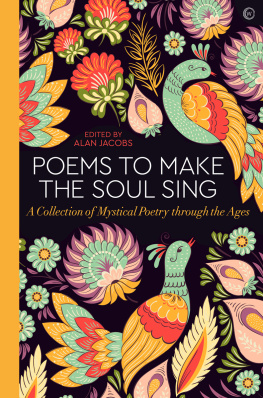
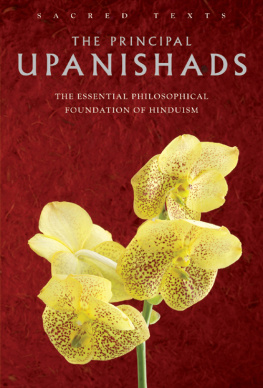
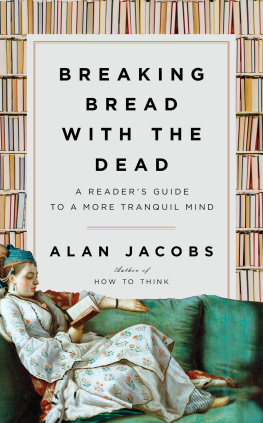
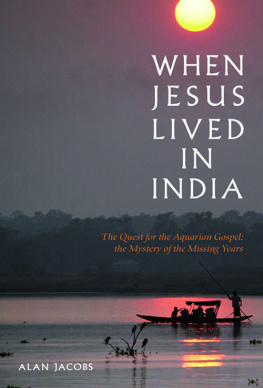
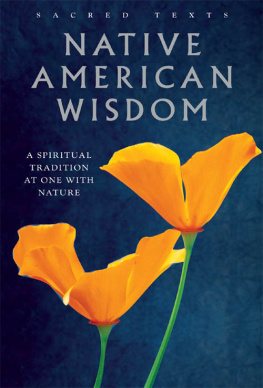
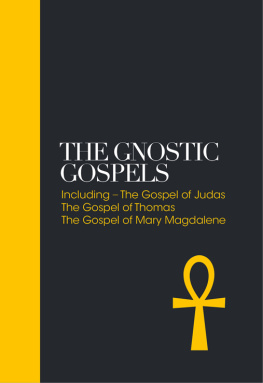
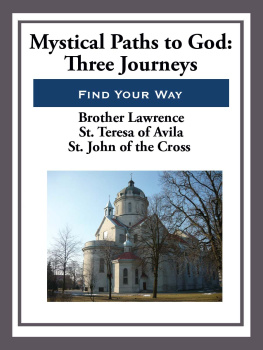
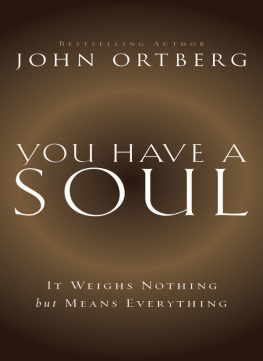
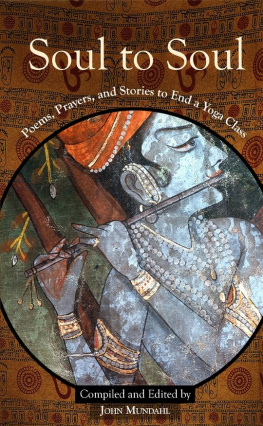
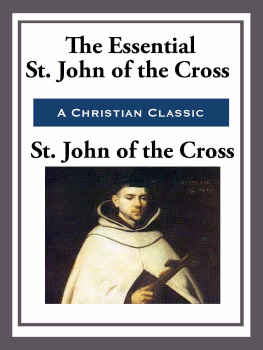

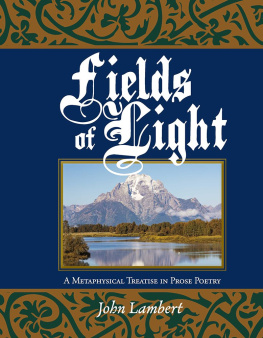
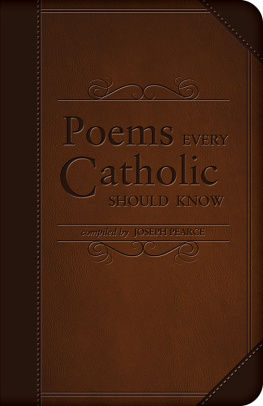

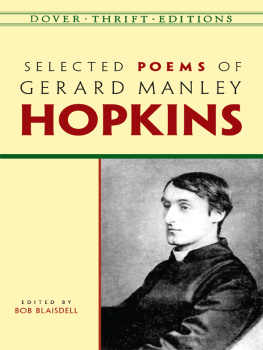



 This edition first published in the UK and USA in 20XX by Watkins, an imprint of Watkins Media Limited Unit 11, Shepperton House 89-93 Shepperton Road, London N1 3DF Design and typography copyright Watkins Media Limited 20XX Text copyright Author (TBC by Managing Editor) 20XX author(s) has/have asserted his/her/their right under the Copyright, Designs and Patents Act 1988 to be identified as the author(s) of this work. All rights reserved. No part of this book may be reproduced or utilized in any form or by any means, electronic or mechanical, without prior permission in writing from the Publishers. 1 3 5 7 9 10 8 6 4 2 Designed by XXX Typeset by XXX Printed and bound in XXX (Use: Manufactured in the United States of America if printed in US) A CIP record for this book is available from the British Library ISBN: 978-1-XXXXX-XX-X www.watkinspublishing.com Alan Jacobs , a retired businessman and art dealer, has made a lifelong study of mysticism. He has almost made an extensive study of the teachings of G I Gurdjieff, J Krishnamurti and Douglas Harding and is Chairman of the Rmana Maharshi Foundation in the UK. He is a poet himself and is published regularly.
This edition first published in the UK and USA in 20XX by Watkins, an imprint of Watkins Media Limited Unit 11, Shepperton House 89-93 Shepperton Road, London N1 3DF Design and typography copyright Watkins Media Limited 20XX Text copyright Author (TBC by Managing Editor) 20XX author(s) has/have asserted his/her/their right under the Copyright, Designs and Patents Act 1988 to be identified as the author(s) of this work. All rights reserved. No part of this book may be reproduced or utilized in any form or by any means, electronic or mechanical, without prior permission in writing from the Publishers. 1 3 5 7 9 10 8 6 4 2 Designed by XXX Typeset by XXX Printed and bound in XXX (Use: Manufactured in the United States of America if printed in US) A CIP record for this book is available from the British Library ISBN: 978-1-XXXXX-XX-X www.watkinspublishing.com Alan Jacobs , a retired businessman and art dealer, has made a lifelong study of mysticism. He has almost made an extensive study of the teachings of G I Gurdjieff, J Krishnamurti and Douglas Harding and is Chairman of the Rmana Maharshi Foundation in the UK. He is a poet himself and is published regularly.